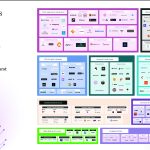
Every day, we navigate a web of small financial decisions that, when combined, have a significant impact on our wallets. From the moment we enter a store to the second we drive away, opportunities for savings and unnecessary spending abound. The economy of daily life is subtle, often overlooked, but mastering it can lead to substantial financial benefits without drastically altering your lifestyle.
The Subtle Cost of Convenience
Modern life is designed around convenience. We shop at large supermarkets that offer extended hours, drive-through fast food lanes, and use online delivery services to save time. While these conveniences offer comfort and efficiency, they also carry hidden costs. A few extra dollars spent on a pre-packaged meal here or an impulse purchase there might seem trivial, but over weeks and months, these small amounts add up.
Even seemingly minor choices, like the brand of coffee you pick up on your way to work or the snacks thrown into your basket at the checkout, contribute to daily expenditure. Recognizing these micro-spending patterns is the first step toward reclaiming control over your personal economy.
The Role of Strategic Shopping
Shopping with a strategy is not just about hunting for discounts; it’s about understanding how to maximize value from every purchase. One effective approach is planning your shopping around store promotions and bulk-buying essentials that have a long shelf life. Comparing prices across different stores and considering alternative brands can save more than you might expect.
Loyalty programs also play a surprisingly important role. Many supermarkets offer points, rewards, or discounts that, when used wisely, can lower your overall spending. For example, accumulating points on products you already buy or taking advantage of multi-buy deals can stretch your budget further.
Fuel Costs: A Hidden Daily Expense
For many people, fuel is one of the largest and most consistent daily expenses. The cost of commuting, school runs, or routine errands can quickly become significant. Small habits, like planning routes to minimize unnecessary driving or combining errands into a single trip, can lead to noticeable savings over time.
One tool that can make a tangible difference is the supermarket fuel card. These cards offer discounts on fuel purchases at participating locations and can be linked to shopping habits. By pairing regular grocery shopping with fuel rewards, you can reduce both your food and transportation costs, making the act of filling up your tank a more economical experience.
Parking and the Price of Access
Beyond fuel, parking costs are another often-overlooked factor in the economy of daily life. In urban areas, paying for parking can be surprisingly expensive, especially if you rely on meters or pay-by-hour lots. Opting for free or lower-cost parking slightly further away, using public transportation for part of your journey, or exploring subscription parking options can save a significant amount over time.
The key is to recognize parking not just as a convenience, but as a controllable expense. By incorporating parking into your broader financial strategy, it becomes one more area where small adjustments contribute to overall savings.
Everyday Habits and Their Compounding Effect
Our daily routines are full of small financial decisions that compound over time. Morning coffee, quick lunch purchases, or last-minute household items may each cost just a few dollars, but cumulatively, they can equal hundreds of dollars a month. Tracking spending, even casually, can illuminate patterns you weren’t aware of and reveal where small changes could have a large impact.
For example, bringing your own lunch to work a few days a week or brewing coffee at home instead of buying it on the go can save hundreds of dollars annually. These habits may seem minor individually, but they create a foundation for smarter financial management.
Technology as a Savings Tool
We live in an age where technology can actively support our economy of daily life. Mobile apps for budgeting, price comparison, and digital coupons allow you to make informed spending decisions on the spot. Many apps alert you to discounts in real time, help you track loyalty points, and even suggest cheaper alternatives for common purchases.
Fuel apps and supermarket apps can be particularly valuable, highlighting the best times to buy or alerting users to special deals that can reduce overall costs. These tools turn everyday transactions into opportunities for savings rather than simple expenditures.
Mindful Spending and Financial Awareness
Ultimately, the economy of daily life comes down to awareness. Being mindful of spending patterns, considering the true cost of convenience, and leveraging tools like loyalty programs, fuel cards, and budgeting apps can transform your financial habits. It’s not about extreme frugality but about making informed choices that preserve your lifestyle while reducing unnecessary expenditure.
By viewing everyday life through the lens of small, cumulative savings, even routine activities like shopping, commuting, and parking become areas of opportunity. The next time you pull into a supermarket car park or pick items off a shelf, consider the hidden economics at play. Simple strategies, such as pairing grocery shopping with fuel rewards or tracking micro-spending habits, can significantly improve your financial well-being over time.
Conclusion: Small Choices, Big Impact
The journey from checkout to car park is more than a daily routine. It’s a series of small economic decisions that shape your financial health. By recognizing the subtle costs of convenience, making strategic choices, and leveraging tools, you can optimize your spending without compromising your lifestyle.
Mastering the surprising economy of daily life isn’t about restriction; it’s about empowerment. Each informed choice, no matter how minor it seems, contributes to a larger pattern of savings and smarter financial habits. Over time, these small adjustments add up, turning ordinary routines into opportunities for lasting economic benefit.












